Miner's last memento on poignant day at Kellingleypublished at 11:45
Miner Kevin McDonagh holds the last piece of coal he cut as he leaves after his final shift at Kellingley Colliery on its last day of operation:
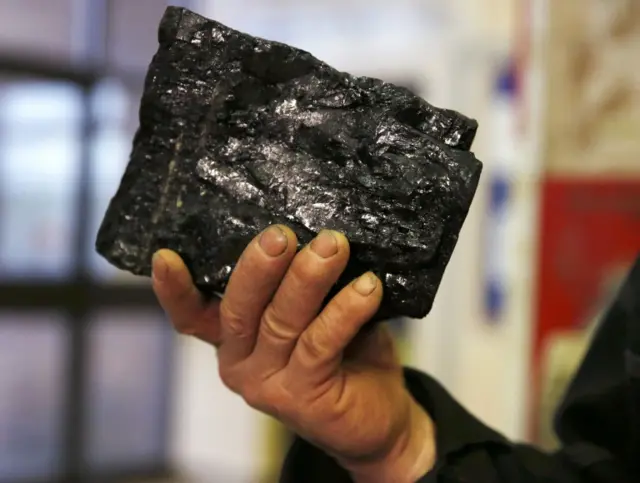 Image source, Reuters
Image source, ReutersLast shift at Kellingley Colliery brings deep mining to an end
Eleven men guilty of child sex offences in Bradford
Two jailed after car driven into Bradford nightclub queue
Leeds City Art Gallery to close for a year to allow roof repairs
Updates on Friday 18 December 2015
Nick Wilmshurst
Miner Kevin McDonagh holds the last piece of coal he cut as he leaves after his final shift at Kellingley Colliery on its last day of operation:
 Image source, Reuters
Image source, Reuters Danni Hewson
Danni Hewson
Business Correspondent, BBC Look North
The last shift at Kellingley Colliery near Castleford later today will bring to an end centuries of deep coal mining in Britain.
It'll also mean the last of the 450 miners will be made redundant after UK Coal, the company which owns the colliery,staged a phased shutdown.
I've been talking to the miners at Kellingley to find out where they go now once the last coal has been mined there.
As the last shift at Kellingley colliery gets to work, BBC Radio Leeds' Liz Green spoke to Nigel Kemp, one of the miners working the last shift at Kellingley.
Quote MessageThis has been my life for 32 years, my father sank the shafts. Everything I've had in my life has come from this mine here."
Nigel Kemp, Kellingley miner
Although Kellingley is the UK's last deep coal mine, surface mines remain dotted around Scotland, Wales, north-east England and the Midlands:
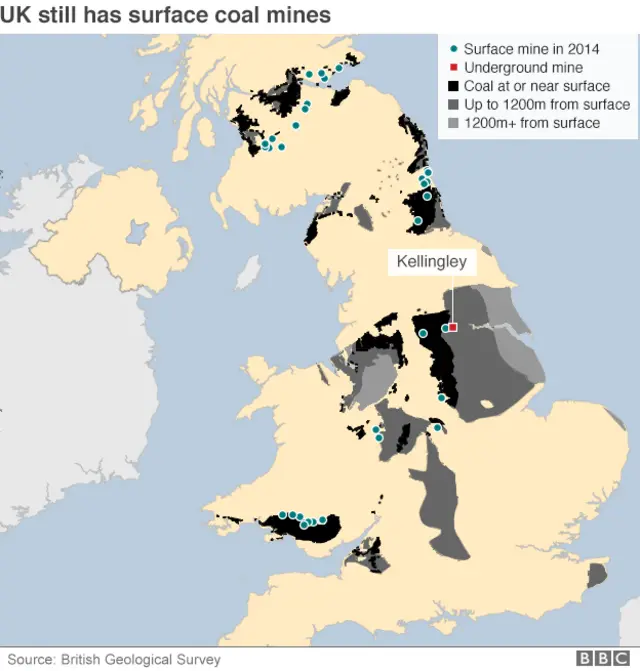
On the last day that coal is produced at Kellingley Colliery near Castleford, Brian Blessed, the son of a Yorkshire miner, presents a short history of coal mining at the site.
The National Union of Mineworkers will be left with just 100 paying members after Kellingley closes, leaving it a shadow of the once powerful organisation of years gone by.
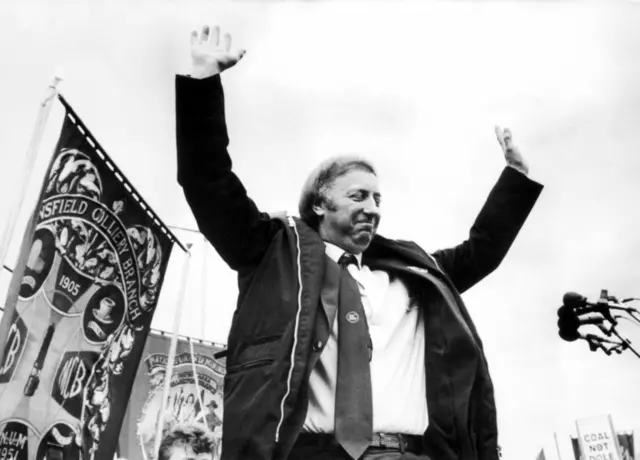 Image source, PA
Image source, PAThe union used to have more than half a million members, holding a series of national strikes in a bid to keep pits open and win better pay and conditions, led by some of the most influential trade unionists of their generation such as Joe Gormley and Arthur Scargill.
But the industry has collapsed after years of closures, which are completed today when the final shift ends at the Yorkshire mine.
Chris Kitchen, general secretary of the National Union of Mineworkers, said it was a "sad day" for the country as well as the industry.
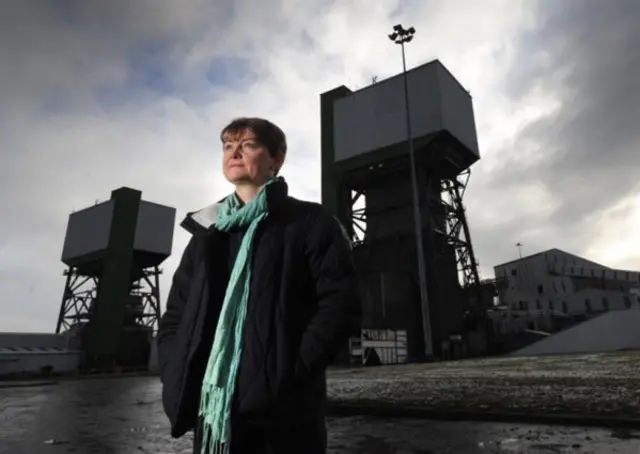 Image source, Yorkshire Post
Image source, Yorkshire Post Danni Hewson
Danni Hewson
Business Correspondent, BBC Look North
The cold truth about today's closure of Kellingley Colliery near Castleford is that the way our economy works made the closure of this, Britain's last deep coal mine, inevitable. No matter the murmurings of an ideological campaign, market forces are the main axe-wielder here.
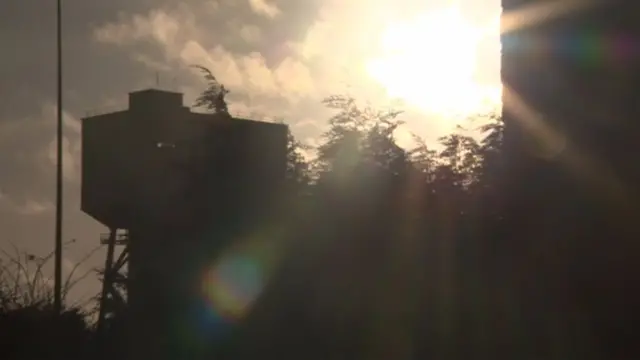
America's dash for shale created a glut of cheap imports Kellingley coal simply couldn't compete against. But also, environmentally, coal could only have had a long-term future if we'd perfected carbon capture and storage (CCS) - and plans for that were shelved this year.
The current government's pushing shale as the potential stop-gap, but the industry-backed Task Force on Shale has said gas, like coal, has no real longevity without CCS.
And so the wheel goes round: the UK is perusing a relationship with gas, other countries are still flirting with King Coal - both fossil fuels. All seem to agree relying on renewables alone is still a somewhat distant dream. And there's the rub...
If you ever wondered what the site of the Kellingley colliery looks like, have a look at this short video filmed this morning. It'll give you a sense of the scale of the place:
 Alex Moss
Alex Moss
BBC News Online, Yorkshire
Kellingley Colliery, the UK's last deep pit coal mine, closes today - and buried underground will be tens of millions of pounds of mining machinery which is now effectively worthless. So, what happens when you wind up a pit that helped power the nation?
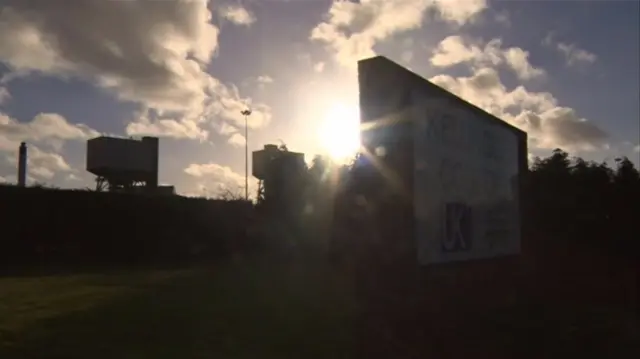
After the last shift, one of the main jobs will be sealing the shafts underneath which will be now-redundant mining equipment worth some £150m. The shafts will be emptied of cables and ropes and then filled with a concrete block about 10m deep.
Demolition is then expected start on the surface buildings and the site will be levelled before ownership is transferred to Haworth Estates for future redevelopment. What that development will be is not yet known.
Away from Kellingley for a moment, there have been some amazing sunrise pictures this morning.
Here's the centre of Leeds looking towards the Corn Exchange a little earlier on:
 Image source, Amber Haque
Image source, Amber HaqueThe sun rises for the last time over Kellingley colliery as a working pit
Allow X content?
This article contains content provided by X. We ask for your permission before anything is loaded, as they may be using cookies and other technologies. You may want to read X’s cookie policy, external and privacy policy, external before accepting. To view this content choose ‘accept and continue’.
Here are today's main headlines
 Owain Wyn Evans
Owain Wyn Evans
Weather presenter, BBC Look North
Some fog is possible across the Pennines and along coastal parts initially, but a mostly dry bright start with some sunny spells across Yorkshire, especially to the east.
Watch my full forecast here
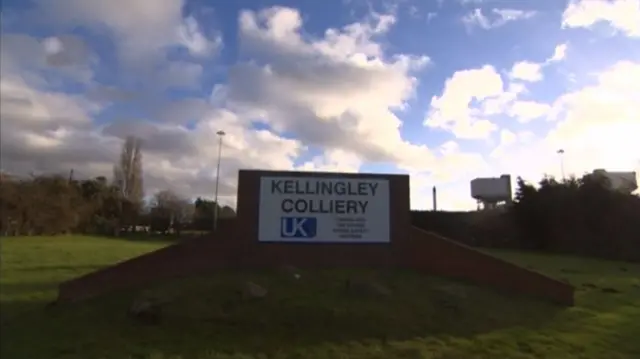
On the day that the last coal is mined from Kellingley Colliery near Castleford, here are some facts about Britain's last deep pit coal mine:
Hi, welcome to BBC Local Live in Leeds and West Yorkshire on Friday 18 December 2015.
It's Nick with you until 18:00 and this morning we're focusing on the closure of Kellingley Colliery, the "Big K".
The last deep coal mine in the UK will close its doors for the last time at lunch today. I'll be bringing you all of the reaction.